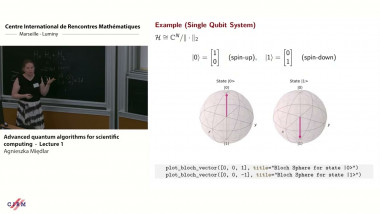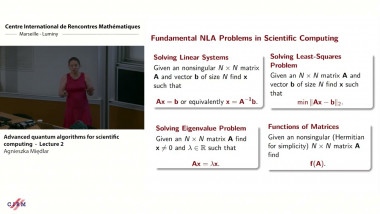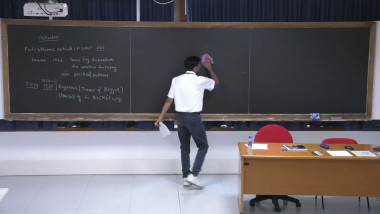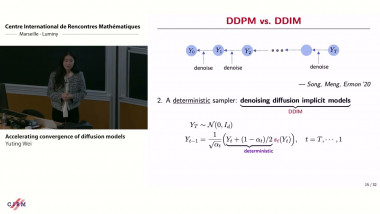Apparaît dans la collection : International traveling workshop on interactions between low-complexity data models and sensing techniques / Colloque international et itinérant sur les interactions entre modèles de faible complexité et acquis
Many problems in computational science require the approximation of a high-dimensional function from limited amounts of data. For instance, a common task in Uncertainty Quantification (UQ) involves building a surrogate model for a parametrized computational model. Complex physical systems involve computational models with many parameters, resulting in multivariate functions of many variables. Although the amount of data may be large, the curse of dimensionality essentially prohibits collecting or processing enough data to reconstruct such a function using classical approximation techniques. Over the last five years, spurred by its successful application in signal and image processing, compressed sensing has begun to emerge as potential tool for surrogate model construction UQ. In this talk, I will give an overview of application of compressed sensing to high-dimensional approximation. I will demonstrate how the appropriate implementation of compressed sensing overcomes the curse of dimensionality (up to a log factor). This is based on weighted l1 regularizers, and structured sparsity in so-called lower sets. If time, I will also discuss several variations and extensions relevant to UQ applications, many of which have links to the standard compressed sensing theory. These include dealing with corrupted data, the effect of model error, functions defined on irregular domains and incorporating additional information such as gradient data. I will also highlight several challenges and open problems.
















